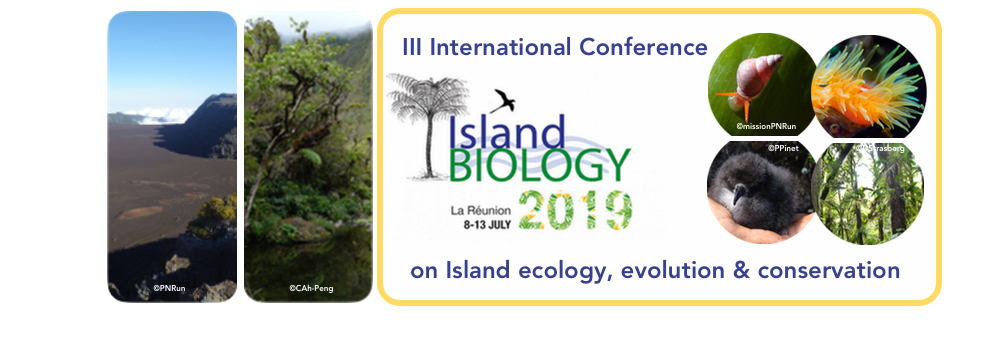Biodiversity in ecological communities can accumulate via colonization from a regional source pool, in situ speciation, or some combination of these. Reconciling the relative importance of these processes is hindered partially because the two extremes are currently the domain of different fields of study. In situ speciation is commonly studied through the lens of phylogenetics and trait evolution, whereas communities assembled via colonization are the focus of neutral and non-neutral models of community ecology. Population genetic variation at the community scale has been rarely studied, and could provide a complementary axis of information to aid in disentangling processes shaping ecological communities. To this end I introduce a mechanistic model of community assembly that roots itself in classic island biogeography theory (MacArthur and Wilson 1967; Hubbell 2001) to make historically dynamic joint predictions of observed data along three axes that unify macro-ecology, phylogeography, and macro-evolution: species richness and abundances; genetic diversities and divergences; and trait evolution within the context of phylogenetic diversification. Using simulations and empirical data I demonstrate that each data axis captures information at different timescales of assembly, and that combining all these axes results in much finer resolution inference. Finally, I demonstrate a simulation-based inferential framework (massive eco-evolutionary synthesis simulations; MESS), which combines ABC and supervised machine learning to test competing models of community assembly and evolution (niche vs neutral and evolved vs assembled) and to estimate an array of model parameters relevant to a complex history of island assembly and evolution.

|
|
|
|
Island biogeography and the distribution of genetic variation in ecological communities
1 : Graduate Center of the City University of New York
(GC CUNY)
365 5th Ave New York, NY 10016 -
United States
|
| Online user: 19 | RSS Feed |

|
 PDF version
PDF version